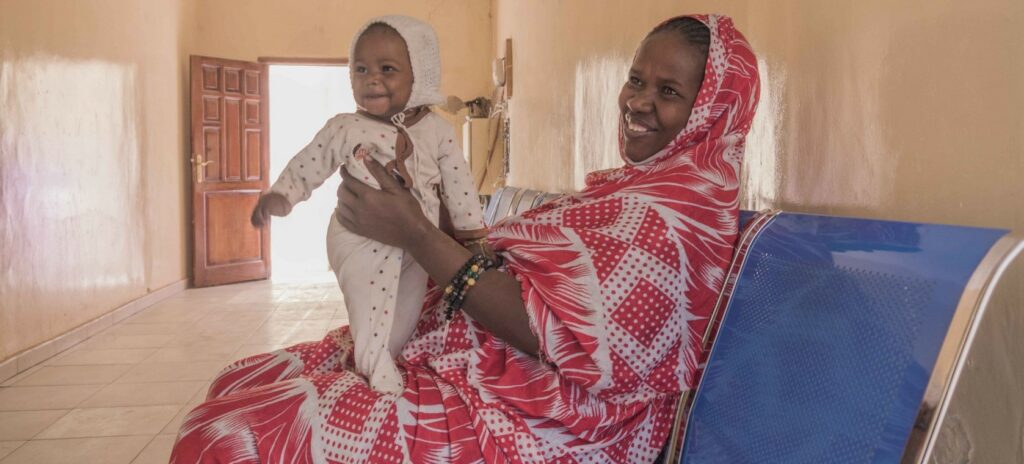Mauritania has long had one of the highest maternal mortality rates in the world. According to the World Health Organization, in 2015, 602 maternal deaths were recorded per 100,000 live births – a far higher rate than in neighboring countries such as Burkina Faso (371 deaths per 100,000 births). By comparison, the maternal death rate in France is around 10 per 100,000 births.
In order to improve financial access to and the quality of maternal care, the Obstetrical Plan was launched in 1998 in Nouakchott, with France’s support, before being gradually extended to most of the country. The OP is a voluntary insurance plan that allows women to be cared for at selected facilities for a fee of €15 to €17 covering: prenatal and postnatal visits, laboratory tests, ultrasound, assisted delivery, transportation, and coverage of any complications.
Both quantitative and qualitative assessments
In 2015, 40% of pregnant women (65,000) were enrolled in the plan compared to 25% in 2010. But the Plan’s effectiveness still had to be measured. An impact assessment was therefore conducted at the start of a new phase of the program’s geographic expansion. The French Research Institute for Sustainable Development (IRD) conducted two quantitative studies, in 2015 and again in 2018, each time using data from major healthcare surveys.
A second research group composed of experts in public healthcare, anthropology, and sociology conducted a qualitative study on the practices of healthcare personnel, the caregiver-patient relationship, and the perception of the obstetrical plan by users. The assessment was published in three installments: one during the initial quantitative analysis phase, one during the second qualitative phase, and then a summary of the final report that was published in late 2019.
A positive impact on the use of care and management
In quantitative terms, these assessments show that women who signed up for the plan delivered 84% of their babies at healthcare facilities, compared to 61% of those who did not sign up. They make more use of prenatal visits (+11% probability of having at least four prenatal visits), have more additional examinations (ultrasound, blood tests, etc.), and are more likely to be assisted by qualified medical personnel during childbirth.
In addition, signing up for the plan significantly reduces the inequality of access to prenatal visits according to the patients’ standard of living, whether they live in urban or rural areas. The plan has helped reduce inequalities between the richest and poorest in access to C-sections in rural areas and facility-based deliveries in urban areas.
Progress still needs to be made in terms of quality of care
At the qualitative level, the assessment shows that the Obstetric Plan has contributed to training healthcare personnel and improving the provision of care, particularly through better management of complications and transporting patients to the hospital. However, there is still room for improvement in the quality of care. On the one hand, this is because staff training, maintenance, and equipment renewal have had a hard time keeping up with the rapid geographic expansion of the OP. On the other hand, it is also because the price of drugs has risen and the financial management of the system has made it difficult for the community healthcare centers to operate properly.
Moving toward universal healthcare coverage
The various surveys conducted provide an overall view of the initiatives needed to support the use of maternal healthcare and thus guide public decision-making. Beyond the financial aspect, it is necessary to take action to strengthen human resources, the availability of medical products, the efficiency of the information system, and supervision.
As a result of the initial findings, a new, more comprehensive approach at the regional level was implemented in 2016, combining work on human resources, the blood and drug pipeline, and community outreach. The next desirable step would be to integrate the plan into creating universal healthcare coverage for Mauritania and restructuring its institutional base for better integration within the Ministry of Health.
Source link : https://www.afd.fr/en/actualites/mauritania-pre-and-postnatal-plan-pregnant-women
Author :
Publish date : 2022-04-13 07:00:00
Copyright for syndicated content belongs to the linked Source.
